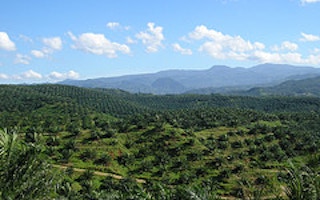For the biorenewables sector, the Southeast Asian markets hold much promise - but some industry players have voiced concern over logistical, political and developmental issues in the region.
These concerns, raised on Wednesday by speakers at Clean Energy Expo Asia in Singapore, touched heavily on Southeast Asia’s dominant cash crop – the oil palm.
Southeast Asia’s strengths are the abundance of biomass, cheap labour and the existence of local oil processing plants, said Mr Per Dahlen, managing director from marketing consultancy Business Creations.
He added that the region is in a good position to capitalise on the industry’s global growth as rising oil prices and advancements in biotechnology close the price gap between fossil and biorenewable fuels.
“We feel that Southeast Asia can become the next frontier,” said Mr Dahlen.
Parts of the oil palm tree such as empty fruit baskets, trunks and fronds, are considered by the industry to be good sources of biomass.
The biggest problem is logistics, said Mr Derek Atkinson, Asian business development manager from PURAC, a leading player in natural food preservation and bio-based chemicals.
Unlike fruit baskets, which are sent to oil processing plants, he explained that fronds are often left on the plantation field as fertiliser – a widespread tradition for many Southeast Asian farmers.
As a result, companies need extra workers to transport fronds to oil processing plants, which require large quantities to produce a commercially viable amount of fuel, further increasing labour demand.
Mr Atkinson raised his concerns over the increasing shortage of labour in Malaysia’s palm oil industry.
“If you want millions of tonnes of biomass to be collected from the fields, there isn’t the personnel available to do this,” he said.
Besides, many palm oil and other cash crops are important national assets in many Southeast Asian countries, noted Mr Steve Peters, director of Stratcon Singapore, a company focused on energy efficiency development.
This has led to “inherent political control” of biomass, and gaining access to these biomass sources requires a “certain amount of sophistication”, he said.
Mr Peters urged companies consider the social and economic aspects of Southeast Asian countries in addition to business concerns.
Using the example of West Papua, he said that the Indonesian province is underdeveloped, and putting a large facility there would be expensive and risky due to the shortage of skilled labour and other business infrastructure.
On the other hand, putting the plant in Malaysia would make more sense, he said.
“It’s not just about the available material,” said Mr Peters. “You need to grow the material in a sustainable way.”
He also touched on developmental aspects, citing the example of Cambodia where the US dollar, as the main currency of the country, has raised the cost of living dramatically.
“You can’t force people to go into quick mode,” Mr Peters said. “You need to develop in a way that does not distort the growth naturally occurring there.”
Eco-Business.com’s coverage of Clean Energy Expo Asia 2011, part of Singapore International Energy Week 2011, is brought to you by Schneider Electric.















